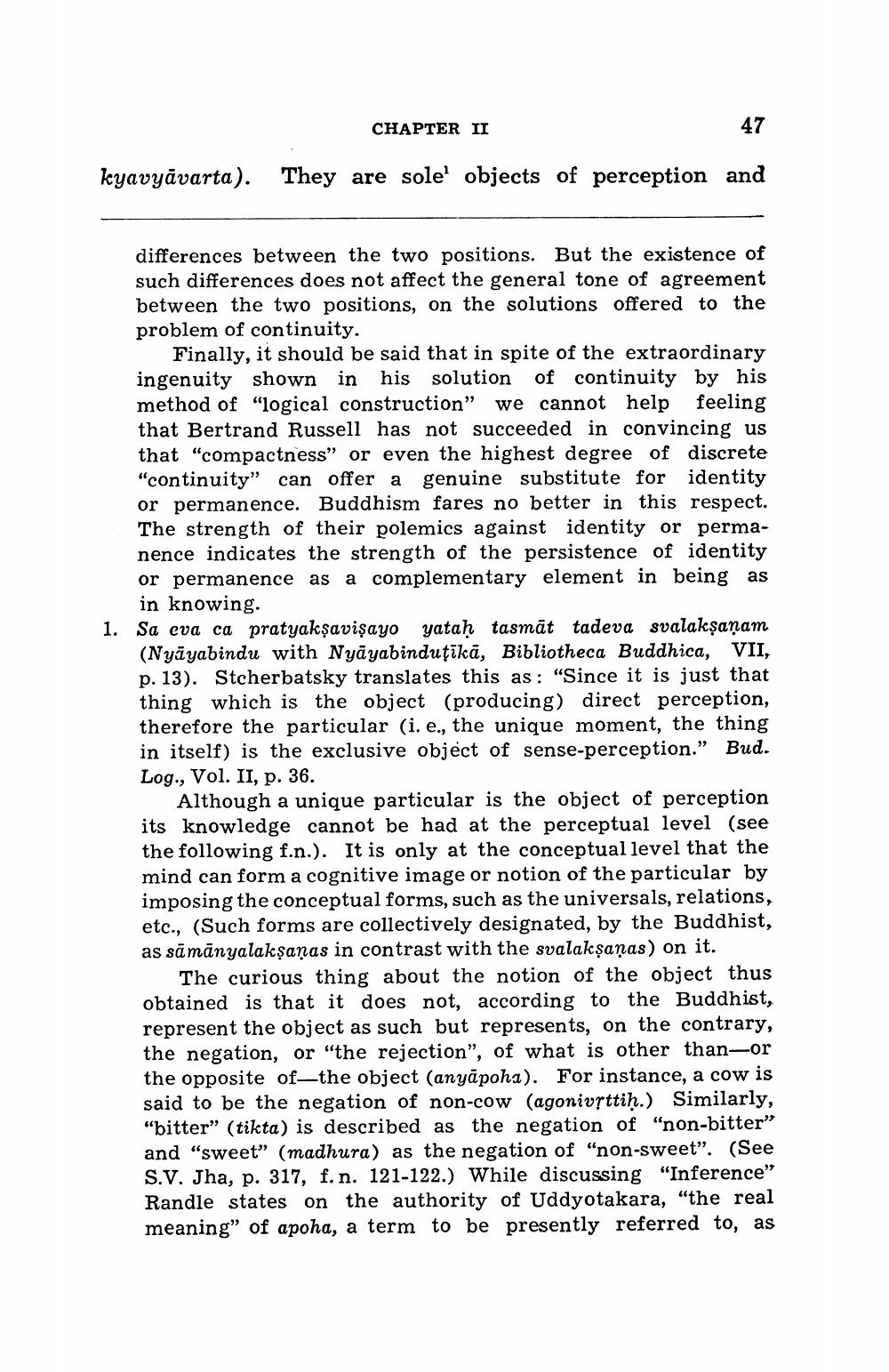________________
CHAPTER II They are sole' objects of perception and
kyavyāvarta).
differences between the two positions. But the existence of such differences does not affect the general tone of agreement between the two positions, on the solutions offered to the problem of continuity.
Finally, it should be said that in spite of the extraordinary ingenuity shown in his solution of continuity by his method of "logical construction" we cannot help feeling that Bertrand Russell has not succeeded in convincing us that "compactness" or even the highest degree of discrete "continuity" can offer a genuine substitute for identity or permanence. Buddhism fares no better in this respect. The strength of their polemics against identity or permanence indicates the strength of the persistence of identity or permanence as a complementary element in being as in knowing. Sa eva ca pratyakşavişayo yataḥ tasmāt tadeva svalakṣaṇam (Nyāyabindu with Nyāyabinduţikā, Bibliotheca Buddhica, VII, p. 13). Stcherbatsky translates this as: "Since it is just that thing which is the object (producing) direct perception, therefore the particular (i. e., the unique moment, the thing in itself) is the exclusive object of sense-perception.” Bud. Log., Vol. II, p. 36.
Although a unique particular is the object of perception its knowledge cannot be had at the perceptual level (see the following f.n.). It is only at the conceptual level that the mind can form a cognitive image or notion of the particular by imposing the conceptual forms, such as the universals, relations, etc., (Such forms are collectively designated, by the Buddhist, as sāmānyalaksaņas in contrast with the svalakṣaṇas) on it.
The curious thing about the notion of the object thus obtained is that it does not, according to the Buddhist, represent the object as such but represents, on the contrary, the negation, or “the rejection”, of what is other than-or the opposite of—the object (anyāpoha). For instance, a cow is said to be the negation of non-cow (agonivșttiḥ.) Similarly, "bitter" (tikta) is described as the negation of "non-bitter" and "sweet” (madhura) as the negation of "non-sweet”. (See S.V. Jha, p. 317, f. n. 121-122.) While discussing "Inference" Randle states on the authority of Uddyotakara, “the real meaning" of apoha, a term to be presently referred to, as




